 Petzlover
Petzlover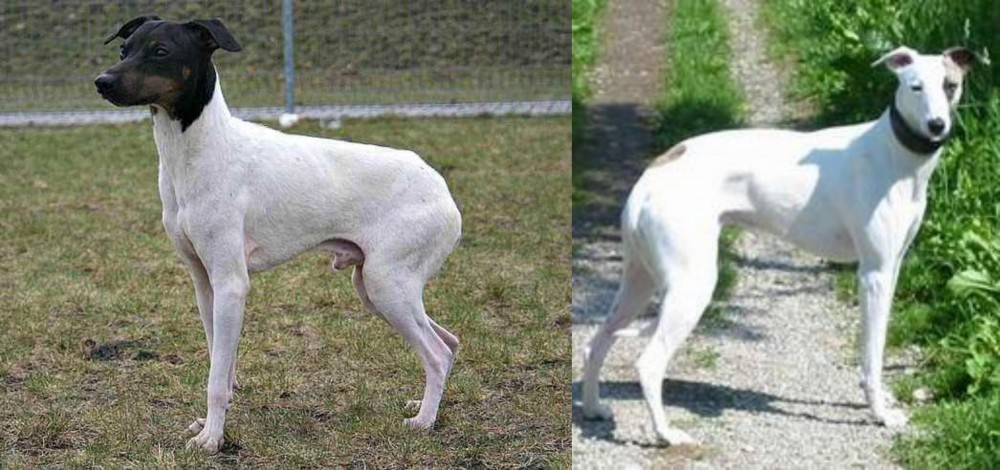 Japanese Terrier is originated from Japan but Kaikadi is originated from India. Japanese Terrier may grow 12 cm / 4 inches shorter than Kaikadi. Japanese Terrier may weigh 16 kg / 35 pounds lesser than Kaikadi. Both Japanese Terrier and Kaikadi has almost same life span. Both Japanese Terrier and Kaikadi has almost same litter size. Both Japanese Terrier and Kaikadi requires Low Maintenance.
Japanese Terrier is originated from Japan but Kaikadi is originated from India. Japanese Terrier may grow 12 cm / 4 inches shorter than Kaikadi. Japanese Terrier may weigh 16 kg / 35 pounds lesser than Kaikadi. Both Japanese Terrier and Kaikadi has almost same life span. Both Japanese Terrier and Kaikadi has almost same litter size. Both Japanese Terrier and Kaikadi requires Low Maintenance.
 The Japanese Terrier is native to Japan and is a rare pure bred dog. It is believed that the dog comes from Smooth Fox Terriers who arrived way back in the 17th century.
The Japanese Terrier is native to Japan and is a rare pure bred dog. It is believed that the dog comes from Smooth Fox Terriers who arrived way back in the 17th century.
Certainly he looks very much like a regular Fox Terrier. It is thought that these smooth Fox Terriers were then interbred with local, Japanese dogs and used to hunt rats. Gradually he became a lap dog and companion.
Planned breeding of the dog began in 1920, and it was in 1930 that the dog was admitted to the Japanese Kennel Club with a breeding program being started.
Today you will find the Japanese Terrier in his home country and small numbers elsewhere. He was admitted to the United Kennel Club in 2006.
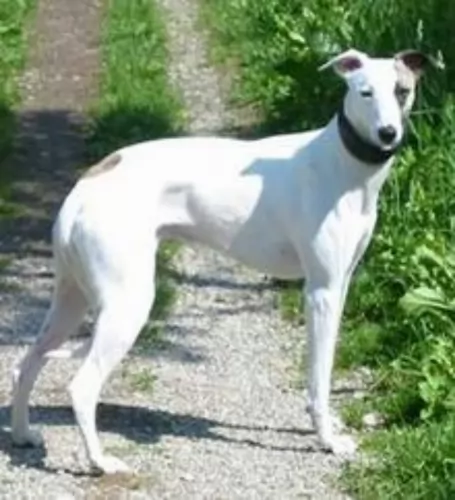 The Kaikadi or Kai Kadi is a terrier dog, hailing from India. Not much is available on the history of the dog, but today you won't easily find original Kai Kadi in India. This is because they have essentially been mixed with stray dogs of India as well as Pariah.
The Kaikadi or Kai Kadi is a terrier dog, hailing from India. Not much is available on the history of the dog, but today you won't easily find original Kai Kadi in India. This is because they have essentially been mixed with stray dogs of India as well as Pariah.
It is for this reason that the dog isn't recognized as a standardized breed by any of the leading kennel clubs.
 The Japanese Terrier is a small sized dog who stands at 20 – 33cm at the shoulders and weighs in at about 2 to 5kg.
The Japanese Terrier is a small sized dog who stands at 20 – 33cm at the shoulders and weighs in at about 2 to 5kg.
He is a short, smooth haired dog with a tight skin and in colors of white and black. Sometimes you may find a little bit of tan color on the face too as well as 'freckles' around the neck area and legs. The black shading of the coat is essentially found around the head of the dog and also his ears.
His ears are set high on the head and are semi-erect, semi-floppy. The tail has always been traditionally docked, giving the dog a nice compact look but these days it is unfortunately often left long and then its a medium length tail which is thinly covered in short hair. The nose is black and the eye are brown, bright and alert.
Gentle, cheerful, intelligent, loving and loyal are some of the characteristics of the Japanese Terrier. People who have kept him as a pet will vouch for him being a wonderful companion.
He is an active dog, but he still loves to be petted and won’t do well if left alone and not part of his human family. Being a clever dog, he is easy to train, learning easily and quickly. He is quite amusing at times and you can even teach him some tricks.
He gets on well with other pets in the home as well as with children. He is alert and will make a good watchdog, alerting you to an intruder.
Because of the Japanese Terrier’s small size and sensitive nature, this breed needs a calm owner and a quiet household. It is not recommended for boisterous households.
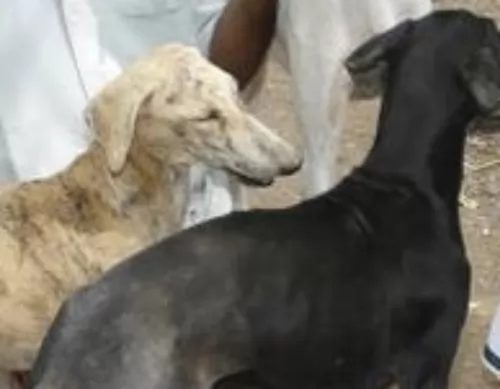 These dog have always been used for hunting, guarding and herding in India and today he makes a good watchdog, watching over his human family.
These dog have always been used for hunting, guarding and herding in India and today he makes a good watchdog, watching over his human family.
It's not a large dog though and he stands at roughly 35 to 45cm in height and weighs 17 to 21kg. He is lean and muscular, looking similar to the Italian Greyhound or Whippet.
He has a short smooth coat and the color can be patterned white, tan and black. The head is long and thin, as are the legs, and his tail is long and thin too. The floppy ears stand erect when alert.
The Kaikadi is an affectionate, alert, energetic dog. He won't do well in a city environment with a tiny garden as he requires a large garden to run in.
He is a dog that will need to be trained and socialized if you want him to be obedient and to get on well with children in the home as well as pets.
He can be a fairly quiet, docile dog inside but outside when there is a game to be had, he becomes lively and animated. They are quite sensitive, so while they get on well with children in the home, he won’t respond well to large families with lots of rowdy, undisciplined children as it makes him anxious.
 As a pet of yours, the Japanese Terrier is an animated, contented little dog. He loves playing games and gets on well with children who aren't rough and disrespectful of him.
As a pet of yours, the Japanese Terrier is an animated, contented little dog. He loves playing games and gets on well with children who aren't rough and disrespectful of him.
He is smart and gentle and loves nothing more than to sit on your lap in the evenings and be your reading- or watching-TV companion. Give him the right amount of attention as any other family member receives and he is guaranteed to make you an excellent, low maintenance pet.
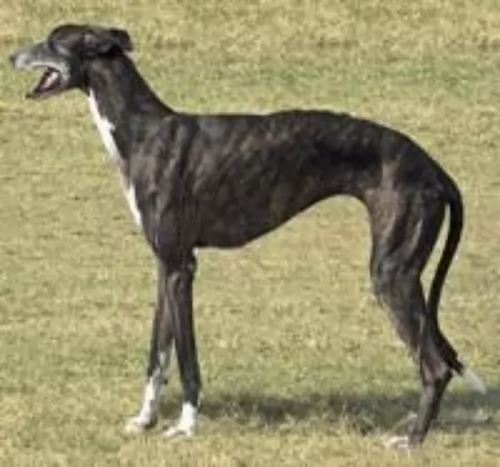 Your Kai Kadi loves running and playing outside, after all he has always been a hunting dog. He will love to spend time with you outside playing.
Your Kai Kadi loves running and playing outside, after all he has always been a hunting dog. He will love to spend time with you outside playing.
The Kaikadi is a low maintenance dog too. Provide your Kaikadi with everything that makes a dog happy and in exchange you’ll get yourself a loyal, loving pet who wants to be your friend.
 The Japanese Terrier has no particular health issues and has a lifespan of 12 – 15 years if looked after well.
The Japanese Terrier has no particular health issues and has a lifespan of 12 – 15 years if looked after well.
There are always one or two illnesses to watch out for such as eye- and ear infections. Some dogs also develop conditions such as Patella Luxation. This happens when your dog's kneecap is dislocated. It can only be returned to its normal position when certain muscles in the back legs are relaxed and lengthened.
With this condition, your dog holds up one of his hind legs. This condition is more prevalent in small dog breeds.
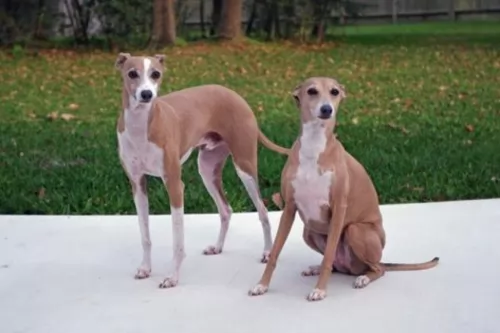 When you’ve got a Kai Kadi, make sure you understand some of the health risks that come along. This is a healthy dog breed so you’re not likely to have much going wrong with him, but you need to know that he can get sick and then you need to have the name of a good vet for medical treatment -
When you’ve got a Kai Kadi, make sure you understand some of the health risks that come along. This is a healthy dog breed so you’re not likely to have much going wrong with him, but you need to know that he can get sick and then you need to have the name of a good vet for medical treatment -
A sudden drop in blood sugar, which is many times brought on by stress, can make your dog lethargic and even have slight tremors in the face. It could be a hypoglycemic attack. See the vet immediately.
The pancreatitis can become inflamed and your dog could be vomiting, have diarrhea and have abdominal pain. There are quite a few things that can cause pancreatitis such as obesity, infection as well as stress.
 The Japanese Terrier is an active dog and will require exercise every day. He’ll love to join you on your walks or have ball games in your garden. He can adapt to life in the city or in the country but will always need to have good exercise.
The Japanese Terrier is an active dog and will require exercise every day. He’ll love to join you on your walks or have ball games in your garden. He can adapt to life in the city or in the country but will always need to have good exercise.
The Japanese Terrier is a medium shedder and you want to be sure then to brush him twice a week to get rid of all those loose hairs.
The Japanese Terriers will require the best commercially manufactured dog food, and instead of one large meal a day, rather feed him 2 smaller meals. You can mix some tasty home-made food into his dry kibble from time to time. Excellent home-made food would be something like cooked chicken, brown rice or pasta and some vegetables.
If you can, try to also include some raw meat occasionally. If you’re in any doubt as to how to feed your Japanese Terrier so that he remains healthy, speak to your veterinarian.
Your dog should never ever be without a continuous supply of fresh, cool drinking water.
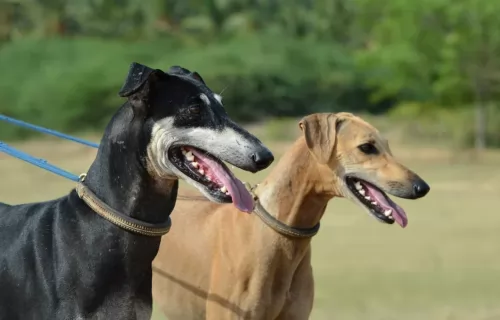 Owning a dog is a responsibility, requiring you to look after a living being just like you would any family member of yours, otherwise why get a dog in the first place?
Owning a dog is a responsibility, requiring you to look after a living being just like you would any family member of yours, otherwise why get a dog in the first place?
You may want a dog for watchdog purposes, but as a living creature, it is important to develop a relationship with your pet and to show him that you love and appreciate him.
There are many things to do to ensure you have a healthy, happy 4-legged canine member in your household
Make sure he has fresh, cool water available to him around the clock.
Provide him with a warm, dry place to sleep.
Provide him with wholesome food to maintain health. There are many excellent commercially manufactured foods on the market. Buy one according to the size and energy levels of your pet. Try to sometimes add cooked home-made food into his kibble such as cooked chicken, brown rice and vegetables as well as some raw meat from time to time. This diet is guaranteed to keep your pet mentally and physically well.
Check your pets nails, ears and eyes regularly. He should be checked for fleas and ticks when you brush him twice a week. Have him examined by a veterinarian as soon as you suspect something is amiss with him. Keep him up to date with his vaccinations.
The Kaikadi is an energetic dog so make sure that you provide him with the opportunity to be exercised. Take him on walks or hikes, play ball and rope games with him and go swimming with him to ensure he remains lean and muscular.
Have him trained and socialized as it takes off the rough-edges of a dog.